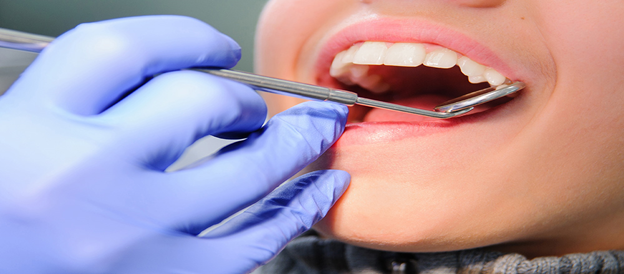It’s reasonable to assume that everyone wants problems to be avoided. To maintain a healthy smile, preventative dentistry can assist in preventing oral illnesses. Examinations, cleanings, and fluoride treatments are examples of common preventative procedures.
Everyone should prioritize getting preventive care. You can maintain your oral health by doing easy things like brushing and flossing regularly.
And going to the dentist for regular examinations and treatments. All of the information on preventive dentistry will be provided in this article.
- 85% of Americans think that maintaining good dental health is essential to overall well-being.
- Surprisingly, only 58% of participants in the same survey saw a dentist regularly. Only 25% expressed satisfaction with the state of their mouth, teeth, and gums.
What Makes Preventive Dental Practices Crucial?
To preserve general health, preventative dentistry in Batavia is an essential aspect of life. To understand the significance of preventative practices, continue reading below.
Preventing issues is usually preferable to dealing with them later. Because oral problems, such as poor oral hygiene, can lead to a range of other problems for other areas of your body. Therefore, preventive dental care is crucial.
In actuality, systemic health problems include heart disease, diabetes, Alzheimer’s disease, respiratory disorders, and arthritis. These have been connected to oral ailments like gum disease.
Maintaining your dental health can lower your chance of developing issues. Especially the ones that affect your general well-being.
The Importance of Prevention
Reactive dentistry may be thought of as waiting for an issue to arise before addressing it. This might entail having a root canal if a tooth is very infected. Also, have a filling if you have a cavity. Or having a tooth extracted when it is beyond repair.
Although these treatments are required when issues occur, they frequently entail more involved procedures. These are sometimes more expensive and may cause discomfort.
On the other side, the goal of preventive dentistry is to stop those issues before they start. You can prevent the need for later, more involved, and intrusive therapies. It’s by emphasizing routine care and early intervention. Check out https://www.americashealthrankings.org/explore/measures/prev_dent_care_overall/IL for some figures.
Here’s a straightforward analogy: Picture your yard. Waiting for grasses to take over followed by spending hours removing them would be reactive gardening. Regular weeding, mulching to inhibit weed development, and making sure your plants are robust and healthy. This is to better withstand weeds are all part of preventive gardening.
Which strategy is ultimately less stressful and more effective? The same holds for the condition of your teeth. There are several benefits to choosing preventative dental versus reactive dentistry.
- Improved Oral Health: Regular preventative treatment lowers the chance of gum disease, decay, and other issues. Do it by promoting healthier tusks and gums.
- Less intrusive Treatments: You can avoid having to go for more intrusive procedures. It is by identifying problems early or eliminating them.
- Lower Costs: Preventing dental issues is less expensive than addressing them after they worsen.
- Increased Comfort: One major advantage of preventative treatment is the avoidance of dental pain and discomfort.
- Better Quality of Life: Confidence and general well-being are enhanced by a healthy mouth.
Ways to Keep Your Teeth Healthy at Home
- Use fluoride toothpaste and a soft-bristled toothbrush to clean your teeth twice a day. Spend a minimum of twenty seconds brushing, making sure to get all of your tusks clean.
- Floss every day to get rid of food particles and plaque. Especially those that your toothbrush cannot reach between your teeth as well as the gum line.
- Mouthwash (Optional): Mouthwash with fluoride can offer further cavity prevention. Gingivitis and plaque can be managed with the use of antibacterial mouthwash.
- Eat a Healthy Diet: Steer clear of acidic and sugary foods and beverages. Since they can erode enamel and cause tooth decay. Prioritize eating a diet high in whole grains, fruits, and vegetables.
- Keep Your Mouth Hydrated: Maintaining a wet mouth is essential for dental conditions and helps wash away food debris and germs.
- Avoid Tobacco Products: The risk of cancer, gum disease, and various other health issues is greatly increased. Especially when smoking and chewing tobacco. You may read this for more info.
- Protect Your Teeth: If you pound your teeth, think about getting a night guard. When playing sports, use a mouth guard.
- Be Aware of Nibbling: Regular nibbling, particularly on sweet meals. It increases the likelihood of acid attacks on your teeth.
Balanced Dental Studio – Benefits
- Gum and Tooth Condition: lower risk of gum disease, cavities, and tooth loss.
- Stronger Enamel: Treatments with fluoride contribute to stronger tooth enamel.
- Fresher Breath: Odor-causing microorganisms are eliminated by routine cleaning.
- Brighter Smile: Clearing of surface discoloration during professional cleanings.
- Timely and Less Intrusive therapy is made possible by early problem detection.
- Lower Expenses: This avoids the need for costly restoration treatments.
- Better Overall Condition: Your oral condition is connected to systemic well-being.
- Enhanced Confidence: Self-esteem is raised by a healthy grin.
- Pain and Comfort: Prevents the discomfort brought on by oral issues.



